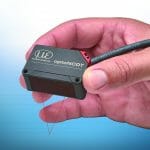A team of undergraduates at Surrey University are pioneering Formula Student in the UK with an all-electric powertrain. Formula Student is the world’s largest student motorsport competition, which brings together teams from universities across the world. Team SURTES (Surrey University Racing Technology Engineering Solutions) operates out of the Engineering Design Centre in Guildford. Four years ago, the team started implementing its first ever electric powertrain.The team’s first aim was to develop a cost-effective, modular electronics design centred around multiple CAN-FD buses and a ‘universal electronics node’. Knowing that CAN-FD is not yet widely used in Europe or within Formula Student this made the project all the more challenging. The high data rates of CAN-FD (up to 8MHz) mean that signal integrity is critical – selecting the right cable was therefore key.
Already receiving engineer support and engineering-grade plastic bearings for its pedal box through igus’ YES (Young Engineers Support) programme, Team SURTES was familiar with the company. It was convinced igus chainflex bus cables would provide the necessary shielding. As the company offers numerous chainflex cables with multiple cores of differing thicknesses, technical support for correct selection was vital.
To explain, the Class 1 car is a fully constructed and running vehicle. The Class 2 vehicle, on the other hand, is not yet a complete running car used to give less experienced team members an opportunity to develop. In the 2017-2018 season, the Class 2 car used a modular wiring loom with a CAN 2.0 node from the voltage inverter to the ECU (Electronic Control Unit). It was a hybrid system with some sensors going through the CAN 2.0 networks and some wired directly. Using an iterative design approach, the 2018-2019 Class 1 car has all the sensors going through CAN FD node apart from the accumulator. The CAN FD can tolerate 8Mbps and for the inertial measurement unit and GPS only needed 2-3Mbps, giving plenty of headroom.
To improve vehicle performance in the endurance event the team developed regenerative braking functions. Formula Student rules stipulate that the maximum power drawn from the accumulator must not exceed 80 kW. Regenerating energy is allowed and unrestricted but only when the vehicle speed is above 5km/h. The Tractive System (TS) Accumulator is defined as all the battery cells or supercapacitors that store the electrical energy to be used.
The team started developing the regenerative braking system a year in advance but did not implement the technology into the car. The motor drives the rear wheels, when the braking pedal is pressed the energy gain from the braking force helps drive the hydraulics brakes. Rotation energy back powers the motor and the current is taken away to the accumulator. In 2018, the system was are up and running with the aim to recover between 10 – 20 percent of the energy, which back powers the battery through the ECU. Team SURTES used igus chainflex HV and CAN communication cables for its Class 1 and Class 2 cars. After completing the build of the 2018 vehicle in January, the team had six months of testing prior to the competition.
For the 2017/18 season Liam D’souza Manufacturing and Assembly manager for Team SURTES says “This is the first time since our switch to EV powertrains that we have completed the endurance event, a proud moment for the team,” says D’souza. The highlight for the team’s Class 2 members, however, was winning the Santander Award for the most improved Class 2 car. This entailed a £5000 cheque towards the team’s next car, presented by Formula 1 legend Jenson Button. The team was 4th overall in the Design event and 6th in the Manufacturing and Cost event.
For the 2018/19 season, the aforementioned Class 2 car was completed and participated in the 2019 FSUK event. This was the team’s most successful year in its 13-year history with achievements such as Top British EV, Best Implemented High-Voltage Powertrain awarded by Mercedes-AMG HPP, and the Most Efficient car at the 2019 event.
“These achievements by our team would not have been possible but for the generous support of igus over the past few seasons,” says D’souza. “This is not something taken lightly by our Team SURTES members and is very much appreciated! We look forward to another successful year of progression within the team and are glad to hear that igus is willing to sponsor us next season.”
For more information about igus chainflex cables please visit: www.igus.co.uk/chainflexor call igus directly on 01604 677240. For more information about the YES (Young Engineers Support) programme for igus, please visit: www.igus.oco.uk/YES








